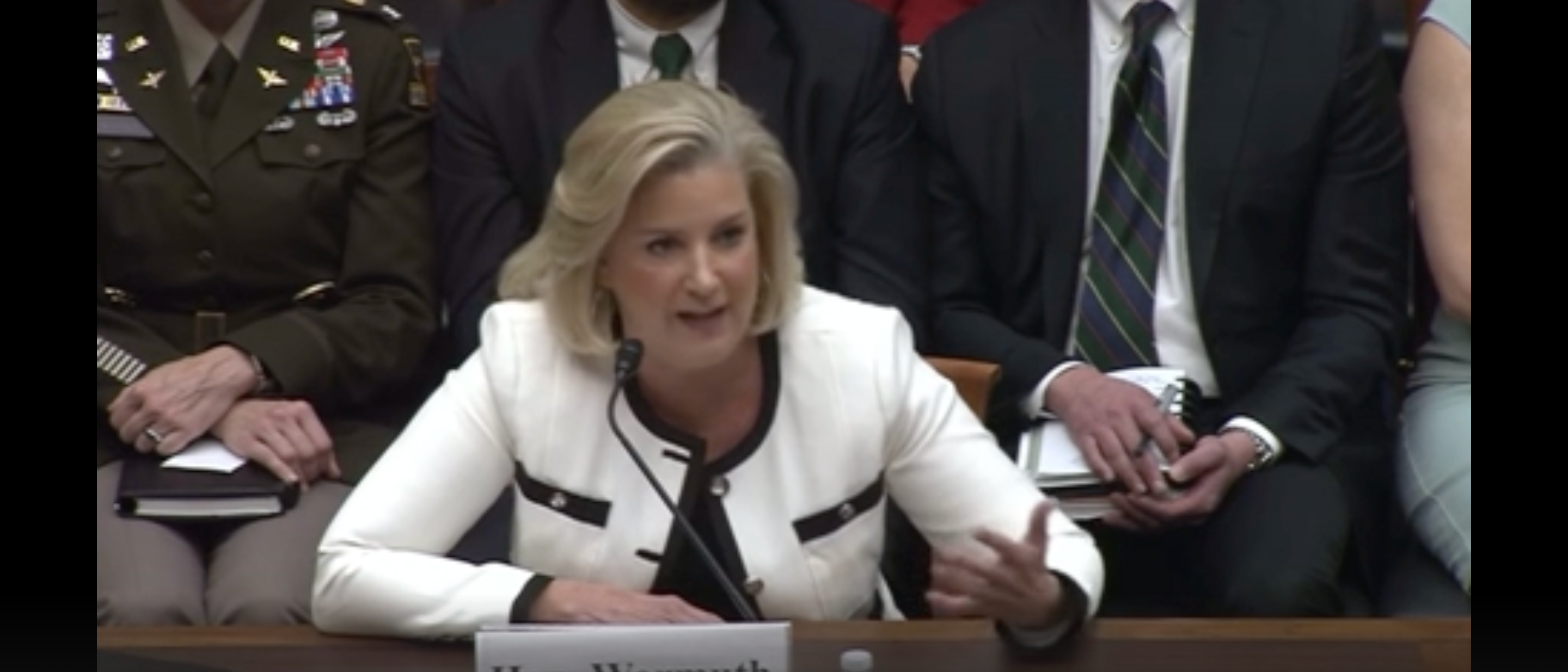National Defense
Biden’s Army Chief Can’t Explain Why Race Should Be A Factor In Recruiting

U.S. House Armed Services Committee
Secretary of the Army Christine Wormuth could not explain in a hearing Tuesday why race should be a factor in recruiting when GOP Rep. Jim Banks of Indiana pointed out that race-based admissions occurs at just one of the Army’s three main sources of junior officers.
Wormuth said she did not know whether race was a factor in accepting candidates to the Army’s Officer Candidate School(OCS), which, along with the U.S. Military Academy at West Point and Reserve Officer Training Corps (ROTC) programs at civilian schools, develop leaders for the Army. Military leaders doubled down on a national security-based argument for diversity after the Supreme Court banned affirmative action at public colleges and universities, but allowedit to continue at service academies in June.
“To be honest, congressman, I’m not sure off the top of my head,” Wormuth told the House Armed Services Committee during the hearing when asked whether race was a factor in admission to OCS. “We basically are looking for the best qualified diverse folks to come into our officer corps.”
The Army had said that affirmative action is “critical to national security,” arguing in favor of keeping race-based admissions at service academies, according to Banks He questioned why race-based admissions to West Point would be important while the Army doesn’t know if a similar practice occurs at OCS.
“The same reason would be true for OCS and our West Point officers. It’s to make sure we have the best qualified diverse set of people to lead an enormous army made up of people from … all different demographics,” Wormuth said.
In July, West Point superintendent Lt. Gen. Steven Gilland defended the academy’s diversity goals in response to being shown an internal document detailing the composition goals for classes up to the class of 2020, including goals related to racial categories black, Hispanic and Asian.
“Frankly I was a little puzzled at the Supreme Court’s decision and the fact that they created a carve-out for the military academies,” Wormuth said. “Why would they treat the academies different from regular civilian colleges and universities? I wasn’t sure what the line of thinking there was.”
WATCH:
“The Supreme Court’s ban on affirmative action at universities obviously applies to ROTC programs. Has that ruling harmed our national security?” Banks asked.
Wormuth did not directly answer whether the impact of the court case, Students For Fair Admissions (SFFA) vs. Harvard, on ROTC programs at civilian schools had a negative effect on national security.
“A large number of our soldiers are African American, are hispanic, are women, and we want to make sure that they have leaders that they look up to, that they have things in common with and that they see as credible. We want to have a diverse set of leaders to lead a diverse set of Americans,” she said.
West Point has long argued in favor of affirmative action to promote racial and ethnic diversity in the officer corps for reasons of promoting unit cohesion and shaping the demographic composition of Army leaders to match that of the enlisted force or the U.S. civilian population, according to a legal brief filed by SFFA, which is fighting against affirmative action at the academy.
West Point argued fostering diversity among the officer corps is “essential” to fulfilling the Army’s “mission to defend the nation,” the documents state.
Wormuth committed to end affirmative action at West Point if congress passed a law mandating the Army do so.
All content created by the Daily Caller News Foundation, an independent and nonpartisan newswire service, is available without charge to any legitimate news publisher that can provide a large audience. All republished articles must include our logo, our reporter’s byline and their DCNF affiliation. For any questions about our guidelines or partnering with us, please contact [email protected].

